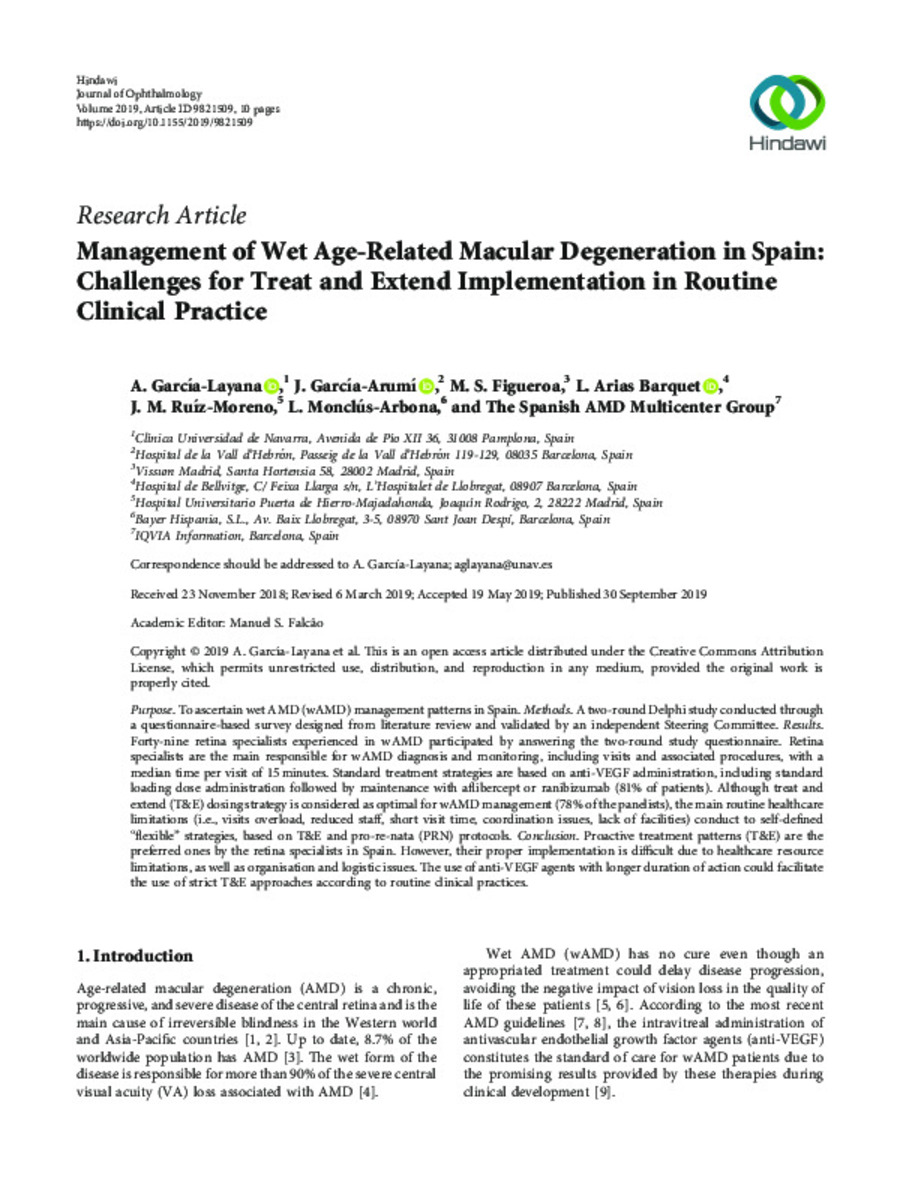Management of wet age-related macular degeneration in Spain: Challenges for treat and extend implementation in routine clinical practice
Keywords:
wAMD)
Retina specialists experienced
Two-round study questionnaire
Aflibercept
Ranibizumab
Publisher:
Hindawi Limited
Note:
This is an open access article distributed under the Creative Commons Attribution
License, which permits unrestricted use, distribution, and reproduction in any medium, provided the original work is properly cited.
Citation:
Garcia-Layana, A. (Alfredo); García-Arumí, J. (J.); Figueroa, M.S. (Marta S.); et al. "Management of wet age-related macular degeneration in Spain: Challenges for treat and extend implementation in routine clinical practice". Journal of Ophthalmology. 2019, 2019, 9821509
Statistics and impact
0 citas en

Items in Dadun are protected by copyright, with all rights reserved, unless otherwise indicated.








